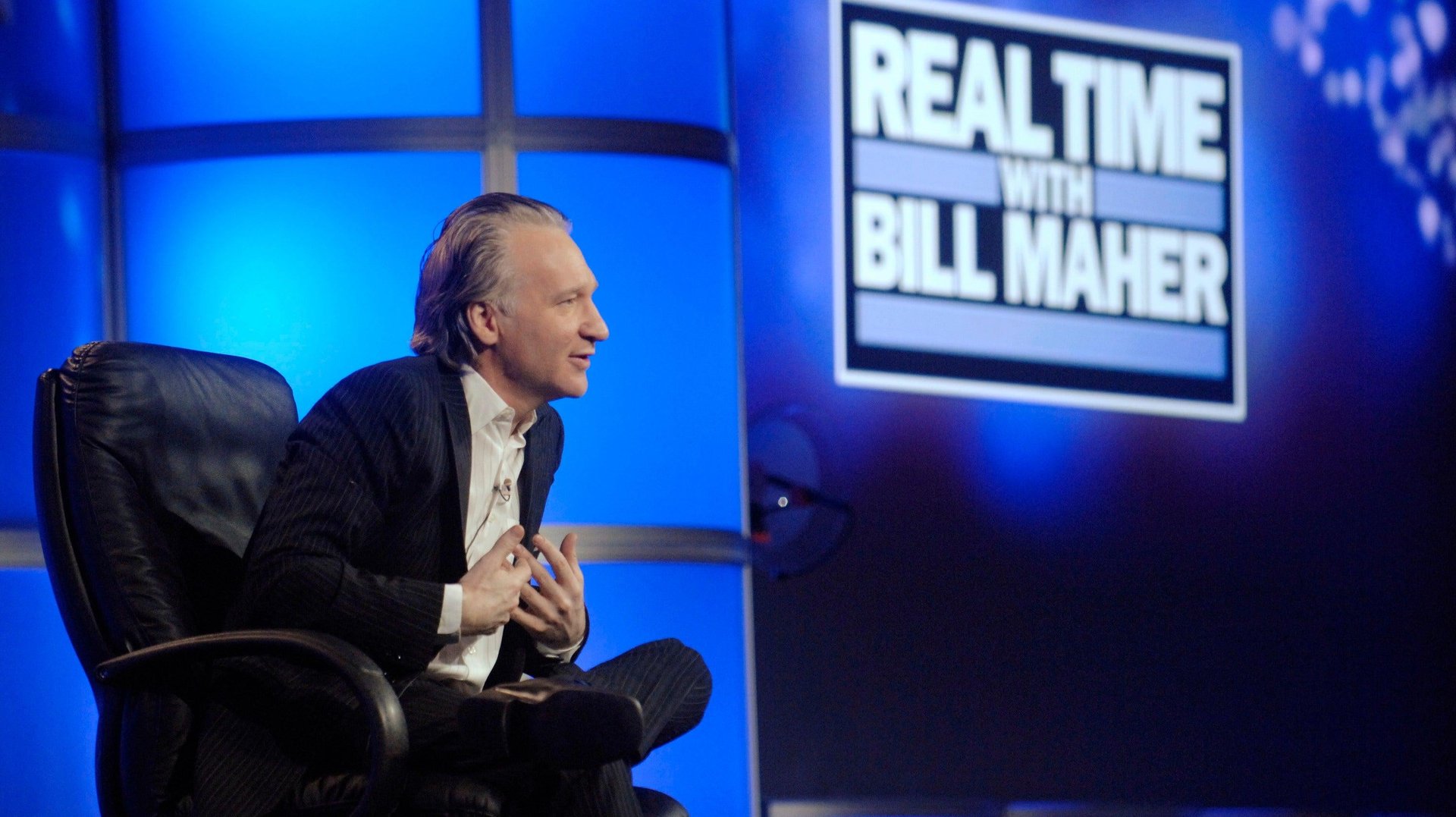Stephen King blames Bill Maher for breaking the Hollywood writers’ strike
Bill Maher announced that his Real Time would be back "sans writers or writing"

Bill Maher’s Real Time is coming back “sans writers or writing,” because people need work—or at least, that’s what he says.
Suggested Reading
“The writers have important issues that I sympathize with, and hope they are addressed to their satisfaction, but they are not the only people with issues, problems, and concerns. Despite some assistance from me, much of the staff is struggling mightily,” Maher wrote in a Sep. 13 post on social media, announcing the resumption of his HBO show. “I love my writers, I am one of them, but I’m not prepared to lose an entire year and see so many below-the-line people suffer so much.”
Related Content
Unionized writers have been on strike since mid-May, almost two months before an actors’ strike began. Their demands broadly include better pay, working conditions, and job security, in an era of streaming platforms and burgeoning artificial intelligence (AI).
Maher promised to honor “the spirit of the strike” by eliminating his show’s pre-written content—monologues and desk pieces, for instance—and instead focusing on off-the-cuff panel discussions. But the author Stephen King, whose novels have inspired countless TV shows and movies, and who is a vocal backer of the writers’ strike, thinks Maher is betraying his writers.
“This is exactly how strikes are broken,” he wrote in rebuke, sharing Maher’s statement.
The Writers Guild of America (WGA) isn’t convinced that Maher can run the show without violating the rules of the union that he’s part of. The WGA called Maher’s decision to go back on the air “disappointing” and said the union “will be picketing this show.”
Déjà vu: Bill Maher already showed his hand on the writer’s strike
Maher’s decision shouldn’t come as a surprise; his stance on the strike has already been teetering. Earlier this month, he labelled some WGA demands “kooky” on his “Club Random” podcast. He added that the strikers “believe that you’re owed a living as a writer, and you’re not.” And that “a lot of people who don’t earn as much money as them (writers)” were being hurt in the process.
Person of interest: Drew Barrymore
Before Maher, Drew Barrymore decided to “own” her choice of going back to work, starting production on her namesake daytime talk show earlier this month. The fourth season of the show, which started during the pandemic, will air beginning Sep. 18.
Barrymore, who had given up hosting the MTV Movie & TV Awards in solidarity with the writers in the first week of the strike, had argued that her show was “in compliance with not discussing or promoting film and television that is struck of any kind.” But the writer Adam Conover called her decision “incredibly disappointing” and asked her to “reconsider.” The National Book Foundation, which had invited Barrymore to host the 2023 National Book Awards, dropped her as host because she resumed her show.
The WGA has been picketing the New York-based production of Barrymore’s show since tapings began on Sep. 11.
How other celebrity hosts are paying out-of-work staffers
Late-night shows were among the first to go off air, and they started paying their staff out of pocket. Unlike Maher, though, they aren’t plotting a comeback to keep the money flowing. Instead, they’ve gotten creative.
🎙 Jimmy Fallon, Jimmy Kimmel, Stephen Colbert, Seth Meyers, and John Oliver started the Strike Force Five podcast to give a public face to the writers’ strike while raising money for out-of-work staffers. Mint Mobile—Ryan Reynolds’ budget carrier service that T-Mobile bought earlier this year—and the liquor company Diageo—which owns Aviation Gin, a brand that Reynolds has invested in—are sponsors.
🌟 Fallon, Kimmel and Colbert are also gearing up to perform a live show in Las Vegas on Sep. 23 for the same cause: making money to pay their employees.
